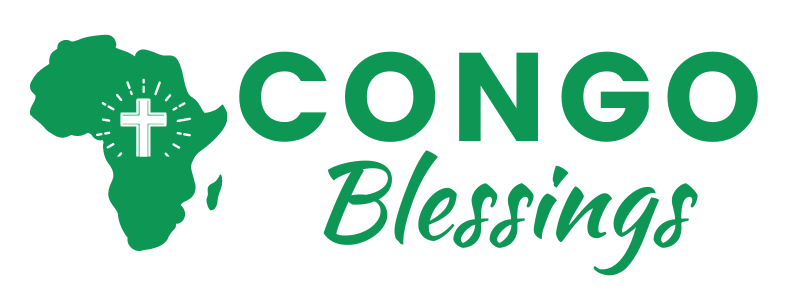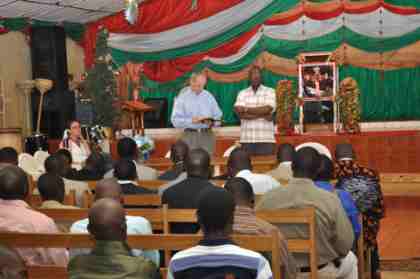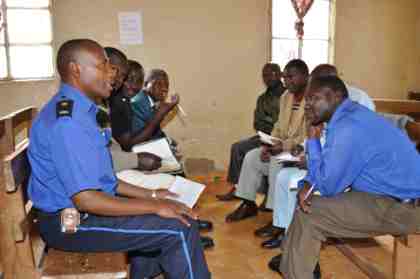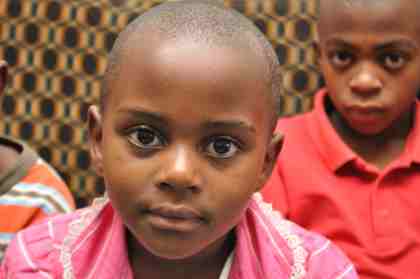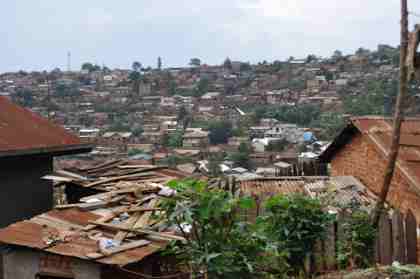Well, much has happened since I wrote the last post. We will all be home tonight. I wanted to get this update out before the “real world” starts tomorrow.
On Tuesday and Wednesday, we had the second and third days of the business seminar. We taught on success and failure, knowing God’s will, marketing, evaluating competition, and basic accounting and finance. We asked them to complete a business plan and email it to us so we might have some measure of “success.” We had about 40 students in the seminar. I have no clue how many business plans we will receive, but I am excited that we have already seen one.
Broken and Complicated
I used to think that the best word to describe Congo was “broken.” In fact, Congo is broken in most every way. However, I think there is another word to add to the mix – “complicated.” It’s broken and complicated for the individual, families, businesses, the government and even churches. It’s broken and complicated in many dimensions, certainly ethically, morally, spiritually and physically. In short, that is why prayer, the Word of God and relationships are so important – and the core of what we are doing.
Enough philosophy, on with the stories.
Here’s one of the “ah ha” moments that we had in the business seminar.
Money and Sharing
One of the big differences between Congo and the US (trust me, there are many) is that they do not have a viable banking system. People do not trust the banks to give them their money when they want it and fees are outrageous. So, let’s just say that mattresses in Bukavu are very thick – stuffed with cash. One guy told us that many people in Bukavu would have $40,000 to $80,000 socked away. No wonder people have walls and gates around their houses and big locks on their doors. (See picture from previous post.) The fact that the cash is stashed away means it can’t be used to build the economy, savers don’t earn any interest, and savers are at the mercy of exchange rates, not to mention robbers. We heard lots of horror stories – here’s one: a woman had saved enough money to import 80 televisions to sell. By the time she could place the order, the exchange rate had changed and she could only buy one. Wow – how sad!
That was one ah ha. Here’s another:
Business owners don’t segregate their business cash and their personal cash. The funds are commingled and kept at home. Now, consider that many small business owners don’t think about saving money to buy goods to replace those that were sold or to replace equipment (like a copier in a copy business) that breaks down. Now for some further complexity: Consider that Congo, like many African countries, has a culture of sharing – it’s almost like living in a commune. In the church, that extreme sharing takes on a Biblical “mandate.” One bishop told me that it would be a sin for a business owner that only had enough cash to replace a copier not to share with an able-bodied man who refused to work and had nothing to eat. I selected such an extreme example to see if there were limits on the culture of sharing. Obviously, there was not – another example of complicated.
While I don’t agree with his position in that particular case, I found the Congolese culture of sharing and their interpretation of Bible verses to be quite convicting. This bishop, who knows the Bible extraordinarily well, inspired me to go back and study some passages without my staunch American capitalist glasses. (Don’t worry; I am not planning on moving our family to a commune.)
Taxes
The message on taxes was universal. If you paid all of the taxes assessed by the government, there is no way a business could stay in business. Wait, I misspoke. People in the government, not the government itself assess taxes. When a business owner pays taxes, he pays it to a person – who then pays a portion to his boss. Therefore, many people in many different government agencies have an incentive to create and assess a tax. But wait, that’s not all. The taxes are all negotiable. I was astounded to hear one business owner tell me that he would much rather operate in Congo than Rwanda because the Rwandese do not negotiate taxes. I never thought of it that way. Complicated.
Christian Business Groups
As the seminar progressed, Mark, Kenna and I realized that most things that we taught would probably die a quick death if there were not some mechanism to keep the people moving. Since we had used small group discussions in the seminar, we challenged them to set up ongoing small groups of 6-10 business owners who are not competitors. More complexity: the Congolese people do not trust each other so the idea of discussing business problems in a small group situation was a foreign concept.
We challenged these groups to meet at least once per month and set up a code of conduct – essentially 10 points about how they will deal with each other (e.g. confidentiality, non-competition) and how they will conduct business in Bukavu (e.g. honesty, customer service). We asked them to email us their code of conduct so that we would have some measure of “success.”
Me Too
We also learned that most Congolese appear to be “me too” in their thinking. If someone has a successful business, then others will open the same kind of business. We encouraged them to pray to our Creator God to give them creative ideas for businesses that would provide for their families, add value to the community and build God’s kingdom. Fortunately, the one guy who has given us a business plant has an idea as well as the experience that would enable him to accomplish all three.
Pastors’ “Brainstorming”
One of my favorite leaders and books on leadership is Nehemiah. The wall in Jerusalem, a symbol as well as a means of safety, had been torn down for years. Through his prayers and leadership and God’s intervention, Nehemiah led the rebuilding of the wall – which was completed in a mere 52 days. Nehemiah shows what is possible when we have the heart and mind of God and are motivated to lead changes that would please Him.
In the brainstorming session, we had about 60 pastors. We reviewed the book of Nehemiah together and encouraged them to be like Nehemiah. We also broke the pastors into small groups and asked them to answer three questions – questions that were designed to prompt some Nehemiah-like thinking.
Please pray that some Nehemiahs would emerge in Bukavu.
Investing in People
One of the values that we have is that seminars won’t change Bukavu, people will. So we spent a lot of time with people outside the seminars to plant ideas, encourage them and pray for them. It’s fun, tiring and mutually beneficial. I think we get more out of it than we give. Going into this trip, there were three people with whom I had invested time. We added two more to the list during the trip – God answered our prayers. We have good relationships with a bishop (an overseer of pastors), a pastor, two businessmen and a student. We are excited about how God is working in their lives.
Going Forward
So what’s next?
We are going to pray that we receive some emails with codes of conduct and business plans. We will wait to see what the mail brings.
Generally speaking, we believe we are on the right track – offering training and relationships that will enlarge their view of God while helping them in highly specific ways. We believe that we are doing things that complement what others are doing in the city. As far as we know, no one is focused on helping business owners succeed and glorify God.
At some point in the future, I will probably return. If you want me to contact you when I begin building another team, please email me at [email protected]. The requirements of going are pretty simple – you just need to want to help people and rely on God to make good things happen. This year, I had prayed that three people would agree to go with me. I asked one of the people who went – my friend, Mark. The others, Kenna (Mark’s wife) and Newton (a Kenyan), were gifts from God that never would have crossed my mind. Maybe YOU will be one of those gifts next time.
Here are some pics:
